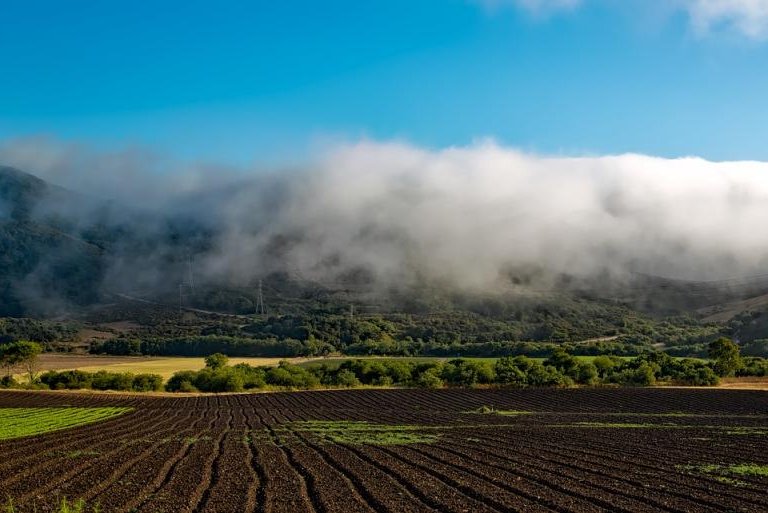
\
California's Central Valley hosts some of the most fertile agricultural land in the United States. Photo by NeedPix/Pixabay
Aug. 18 (UPI) -- To save money and avoid burdensome debt, farmers often share expensive equipment with their neighbors. Whether they know it or not, new research suggests farmers also often share a much lighter asset -- wild bees.
Too often, researchers argue in a new paper, farmers who cultivate habitat for bees go unrewarded, while their neighbors receive pollination services for free. After all, bees don't pay attention to fences or land boundaries.
Authors of the new paper, published Tuesday in the journal People and Nature, argue farmers who make life easier for wild bee populations should be compensated.
"Understandably, farmers with highly valuable crops don't always want to give up plantable space to create habitats for wild bees, especially if their crops could be pollinated by a neighbor's bees for free," lead study author Eric Londsorf said in a news release.
RELATED U.S. beekeepers saw unusually high summertime colony losses in 2019
"What we're proposing is that those farmers providing bee habitat could be rewarded for doing so, to the benefit of all," said Londsorf, a researcher at the University of Minnesota's Institute on the Environment.
To better understand the value created by farmers who cultivate habitat for bees, researchers looked at wild bee ecology, crop values and land ownership patterns in Yolo County, California.
Many of the farmers in the fertile Central Valley country grow bee-dependent crops like berries and nuts, which are worth thousands of dollars per acre.
RELATED Grooming bees help boost colony immunity
It's the opportunity costs, not the startup costs, that keep farmers from cultivating habitat for wild bees, researchers say.
Attracting wild bees is often as simple is letting a patch of land grow wild -- bees benefit from a patch of wild grasses and flowers amidst the rows of commercial crops.
According to the calculations of Londsorf and his colleagues, if 40 percent of farmers in Yolo County grew wild bee habitat, they would miss out on roughly $1 million of revenue, but would generate almost $2.5 million for their neighbors.
RELATED Pesticides harm honeybee nursing behavior, larval development, video shows
Researchers suggest the USDA and other federal agencies take the lead in organizing programs to help farmers coordinate their pollination efforts, ensuring the costs and benefits of cultivating wild bee habitat is shared.
"This is about tackling the tragedy of the commons, the idea that what's good for society isn't always what's good for a particular individual," said study co-author Taylor Ricketts.
"This research shows how and where working together can really increase the benefits for everyone, and just as important: where it won't," said Ricketts, director of the Gund Institute for Environment at the University of Vermont.
No comments:
Post a Comment